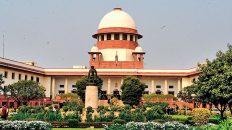The Kerala High Court Thursday asked organisations associated with the film industry to take steps to constitute a joint committee to deal with cases of sexual harassment of women, in line with the Sexual Harassment of Women at Workplace (Prevention, Prohibition and Redressal) Act of 2013.
Ruling on a clutch of petitions which urged the court to ask the state government to inquire into compliance of provisions of the Act, and also a direction to film associations, newspaper bodies and political parties to constitute a panel for social audit in their establishment and effective functioning of the Internal Complaints Committee, the division bench of Chief Justice S Manikumar and Justice Shaji P Chaly recommended that the production unit of each film industry maintain an ICC if they are engaging more than 10 workers.
If the number of women workers employed in any film-related organisation is less than 10, then such an organisation is entitled to make suitable complaints to the local complaints committee in accordance with provisions contained under Section 6 read with Section 9 of the 2013 Act.
The bench, however, said that political parties “which are not having any employer-employee relation with its members and which are not carrying with any private venture, undertaking etc, in contemplation of a ‘workplace’ as defined under section 2(o)(ii) of Act, 2013, are not liable to make any Internal Complaints Committee”.
Petitioner Women in Cinema Collective had pointed out that the Association of Malayalam Movie Artists (AMMA) had failed to implement a grievance redressal mechanism for its members against sexual harassment at workplace, and that this failure was a breach of the Vishaka Guidelines of the Supreme Court and violation of provisions of the 2013 Act.
The HC direction came on petitions saying the film industry cannot be beyond the purview of the POSH Act, and it amounted to violation of the Vishaka Guidelines. The ruling came days after Malayalam actor Bhavana, who was allegedly abducted and sexually assaulted in 2017, a case in which actor Dileep is an accused, went public on her ordeal, detailing the trauma and finger-pointing that followed.
Kochi-based Centre for Constitutional Rights Research and Advocacy had petitioned on the same issue, flagging allegations of sexual harassment against members of a political party and sexual harassment of some members of the Kerala Working Women Journalists.
Incidentally, the High Court is hearing the case of Malayalam actor Bhavana, who was allegedly abducted and sexually assaulted in 2017 — a case in which actor Dileep is one of the accused. Earlier this month, Bhavana spoke in public about her ordeal, detailing the trauma and finger-pointing that followed in the days after the incident. She said the idea of victims of sexual assault coming out in public and voicing their experiences should be normalised.























Add comment